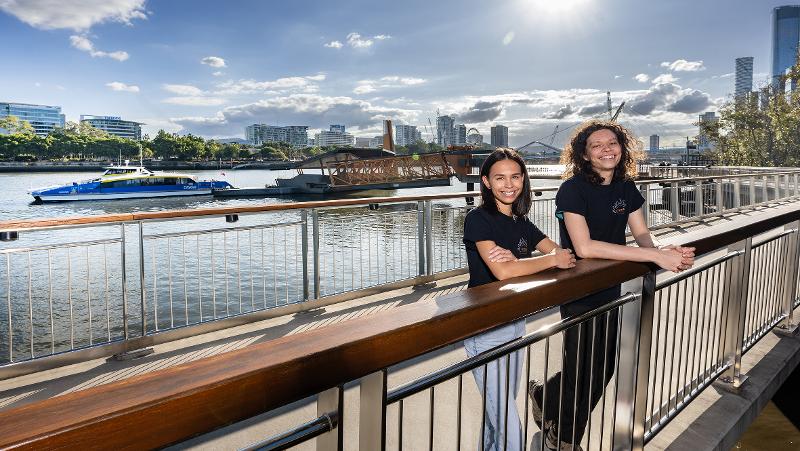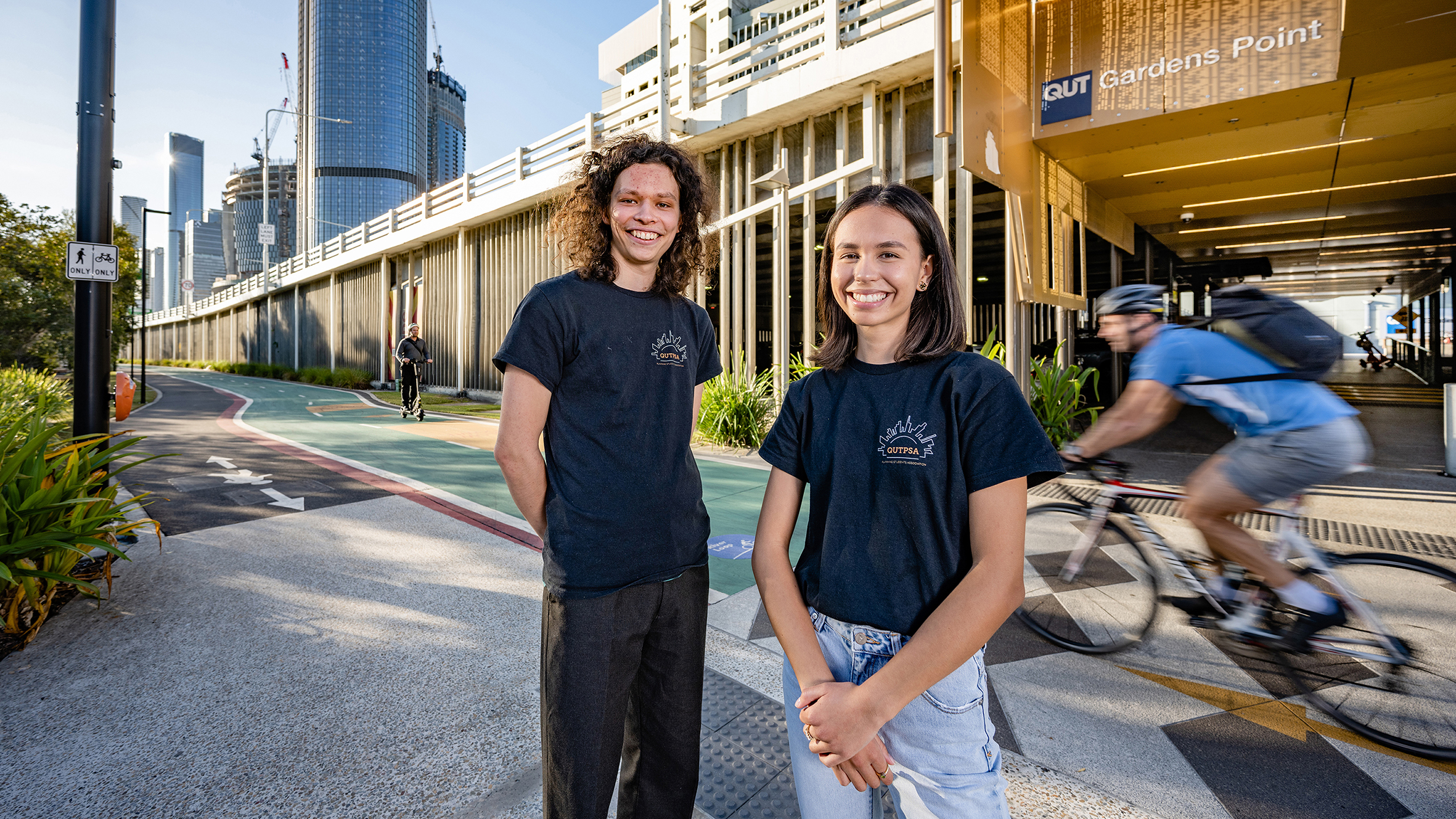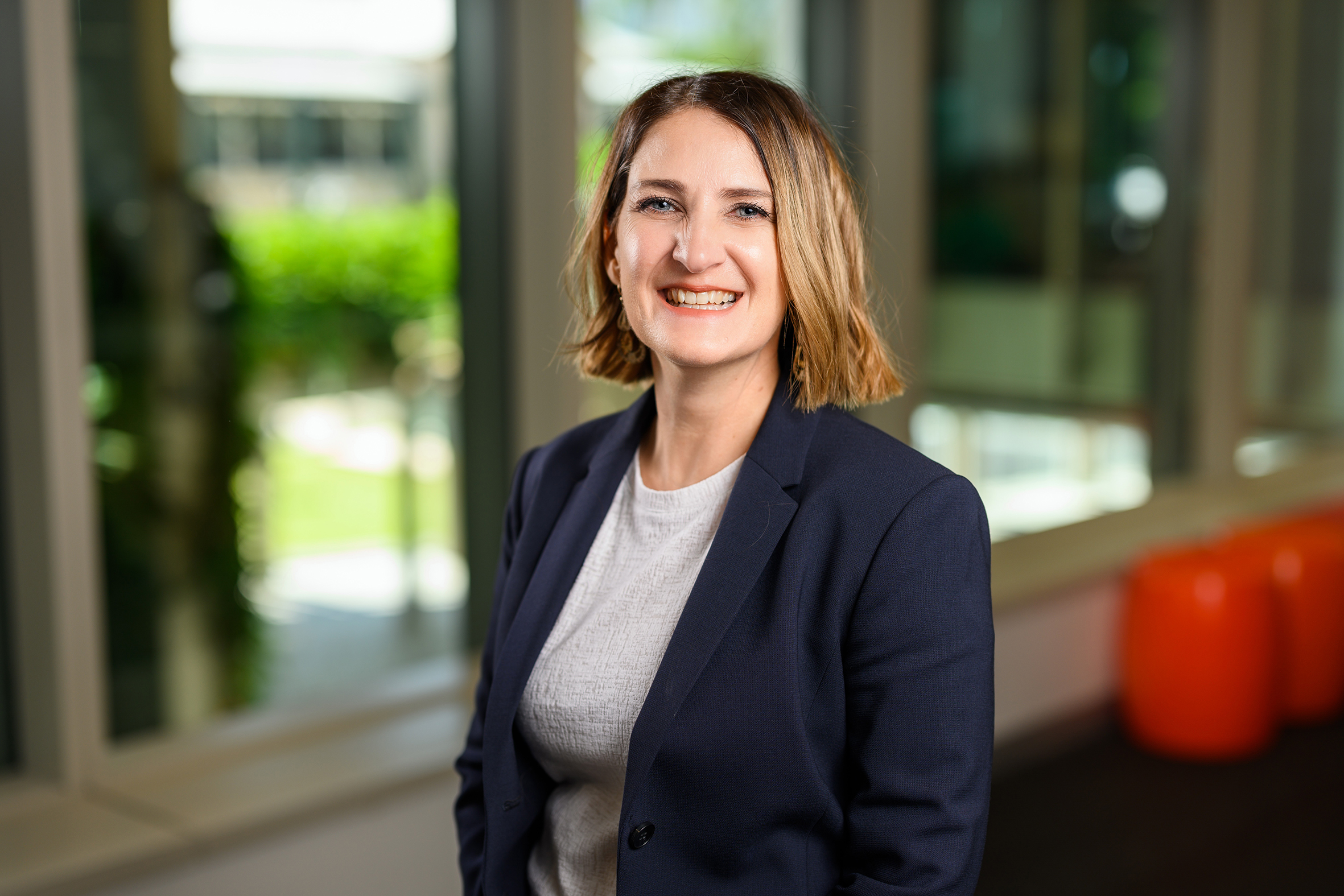
Is Brisbane set to become one of the great river cities of the world? Two QUT urban planning students are heading to the Netherlands to learn from some of the world’s best experts on sustainable cities built around waterways and active transport infrastructure.
Teah Hammet and Oliver Manias have been selected to attend the prestigious TU Delft Summer School, Planning and Design for the Just City, from July 3 to 14 at the Delft University of Technology (TU Delft).
The summer school will explore the Dutch tradition of water management, with a focus on spatial design, urban sustainability, and environmental technologies used in urbanised delta regions.
The QUT students are particularly keen to glean knowledge from European experts on designing urban areas in ways that embrace active transport and environmentally friendly lifestyle choices.
And with Brisbane on a fast track to the 2032 Olympic and Paralympic Games, thoughtful and sustainable urban planning – and developing our planners of the future – has never been more important.
Teah and Oli are both studying a Bachelor of Urban Development (Honours) with the QUT School of Architecture and Built Environment. Teah is also studying a Bachelor of Science, majoring in environmental science, and is the president of the QUT Planning Students Association.
Teah said she was looking forward to the summer school’s focus on ‘Just Cities’ – a concept that encourages planners and policymakers to focus on equity, diversity and participation.
“I believe that justice needs to be at the forefront of planning now more than ever; social justice and environmental justice in particular,” she said.
“In our own backyard, injustice takes shape in the form of the lack of integration of First Nations voices in planning, designing and building on Country, the increasing rates of homelessness in our city, and the impacts of climate change on our city.
“Learning how to plan and design for a ‘Just City’ at one of the most prestigious schools in the world, and in a city that is practicing what they preach, is a once-in-a-lifetime opportunity. I can’t wait to bring the concepts I learn home to Brisbane and put them into practice throughout my career.”
Teah said she chose to study urban planning because she wanted a career where she could actively contribute to the community. In addition to her studies, she is a junior urbanist at Ethos Urban – an urban development advisory firm.
“I’m inspired by communities that are planned to foster happier, healthier and safer lifestyles for people, and development that places sustainability at the cornerstone of projects,” she said.

Oli said he hoped the Delft Summer School would increase his knowledge on how to be more inclusive when planning urban environments, especially sustainable transport systems.
“I have been interested in urban planning ever since I was six years old when I created a model city in my bedroom,” he said.
“Over time the city has transformed to align with my interests of sustainability and active transport that I am now pursuing as a career … I hope to work with Sustainable Development Goals in the area of transport or environmental planning.
“In the lead-up to the 2032 Games, I would like to see Brisbane/Meanjin undertake a significant modeshift from cars to public and active transport.
“In my opinion, some of the most impressive river/waterway cities in the world are Sydney, London and Prague. All of these cities make good use of their blue space with a large amount of public space along the waterfronts, including walking paths and dining precincts.
“Brisbane/Meanjin also has significant areas of public space to interact with the waterway with active transport routes … however there is still room for improvement to establish a more naturalised riparian zone with healthy mangrove environments and reduced amounts of grey infrastructure on the riverbanks.”
The Head of the QUT School of Architecture and Built Environment, Professor Karen Vella, said it was an exciting time for urban planners in Queensland.

“Brisbane has an incredible opportunity to enhance the city and its amenities through the redevelopment required to deliver the 2032 Games,” she said.
“Ideally, the Games will also provide much improved active and public transport infrastructure, with renewed precincts for local businesses, and a commitment to sustainability that ensures Brisbane meets the needs of its diverse residents.
“However, this won't happen unless we get the planning right. Our QUT course aims to develop the talent of future generations of urban planners who can tackle challenges like the Olympics.
“The Netherlands is well known for its innovative approaches to high-quality urban planning and design, and it’s wonderful that QUT has relationships with world-leading institutions such as TU Delft. Teah and Oli will be able to take what they learn and use it in their future work to improve urban sustainability.”
People can learn more about studying urban planning at the upcoming QUT Open Day on July 30 at the Gardens Point and Kelvin Grove campuses.
Photo at top: QUT urban planning students Teah Hammet and Oliver Manias, pictured on the walkway between Gardens Point campus and the Brisbane River.
QUT Media contacts:
- Mechelle McMahon, media@qut.edu.au
- After hours, 0407 585 901 or media@qut.edu.au


